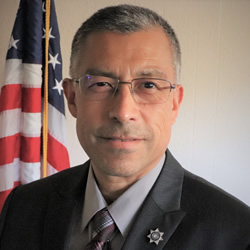6.10 Legal Access upon Admission
| Chapter |
6 |
| Section |
6.10 |
| Subject |
6.10 Legal Access upon Admission |
| Effective Date |
1/31/2024 12:00 AM |
- Pursuant to Section 627(a) of the Welfare and Institutions Code, newly admitted youth shall, within one (1) hour of admission, be advised of his or her right to make two (2) completed phone calls, one to a parent, legal guardian or responsible relative, and one to an attorney. Note: Willfully depriving a youth of his/her right to make telephone calls is a Misdemeanor pursuant to Section 627(b) of the Welfare and Institution Code.
- Pursuant to Section 825 of the Penal Code, staff cannot willfully refuse or neglect to allow any attorney (including an un-appointed Public Defender) to meet with a detained youth at the request of the youth or any relative of the youth.
- Advisement of Constitutional rights (WIC 627.5)
- When a youth is booked into custody Juvenile Hall staff shall immediately advise the youth and his/her parent or guardian that anything the youth says can be used against him/her and shall advise them of the youth constitutional rights, including his right to remain silent, his/her right to have counsel present during any interrogation, and his/her right to have counsel appointed if he/she is unable to afford counsel.
- Following the detention hearing, a youth, whether or not he/she has requested counsel, may NOT be interrogated about the charge for which the youth appeared in court.
- Once a youth has requested counsel, he/she may not be interrogated unless the attorney for the youth agrees to such interrogation, or unless the youth personally initiates further communication, exchanges, or conversations with the authorities.
- The Juvenile Hall is not required to notify a youth’s previous attorney when the youth is taken into custody, unless requested to do so by the youth.
- Law Enforcement Access to Youth
- A youth may be made available to law enforcement post detention hearing for questioning regarding a crime that is unrelated to the one for which the youth appeared in court unless the youth has invoked his right to counsel.
- If the youth has invoked his right to counsel, he/she may not be interrogated about any crime for which the youth is a suspect unless the attorney for the youth agrees or the youth personally initiates further communication, exchanges or conversations with authorities.
- If a law enforcement officer request they wish to question a youth who has requested counsel in connection with a crime for which the youth is not a suspect, (i.e.; the youth is a victim or a witness) Juvenile Hall staff will make the youth available to law enforcement.
- If law enforcement investigators are interrogating a youth and an attorney arrives in person at the facility and wishes to speak with the youth, the Juvenile Hall staff shall advise the youth that an attorney wishes to speak with him/her. It will be up to the youth to decide whether to speak with the attorney at that time or proceed with the interrogation.
- If a youth who has not requested counsel is being interrogated by law enforcement investigators, and any attorney calls the facility, but is not physically present, and requests that a message be relayed to the youth, the Juvenile Hall shall not convey a message to the youth from an attorney that is not physically present in the facility.
- Juvenile Hall staff shall not honor an attorney’s request to halt the interrogation until the attorney arrives at the facility. When the Juvenile Hall staff declines to honor the attorney’s request to halt the interrogation and declines to convey a message from an attorney to the youth, the requesting attorney shall be so advised. (See procedure in C. above)
- If an attorney makes a request by telephone to interrupt an interrogation so that he/she may speak to the youth, Juvenile Hall staff will not do so and will advise the attorney they must be present.
- If a youth who has not requested counsel is being interrogated by law enforcement investigators, and Juvenile Hall staff is made aware that the youth requests to speak to his or her parent(s), the youth will be given an immediate opportunity to contact his/her parent. It will be up to the youth whether or not to continue with the interrogation.
